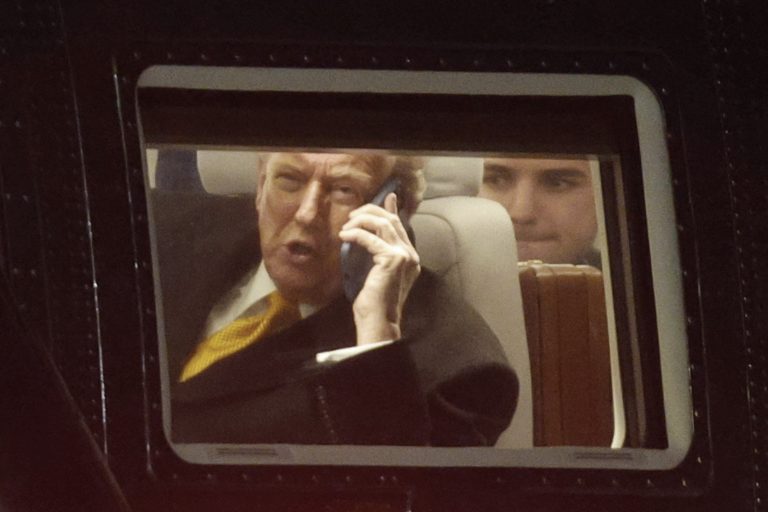ALBANY, New York — Senate Minority Leader Chuck Schumer’s omnipresence in New York state politics has been his calling card for the past three decades — until now.
New York’s senior senator has delivered hundreds of college commencement addresses over the years and made countless cameos at everything from parades to road races to strangers’ barbecues. Locally, nothing has defined his brand more than a 26-year streak of annual visits to each of the state’s 62 counties.
But Schumer has been largely absent of late: He only made official visits to 30 of the 57 counties outside of New York City as Thanksgiving nears and he toned down his presence on the commencement address circuit this spring. The senator has also been anything but a kingmaker in a changing state Democratic party — notably opting out of endorsing in this year’s New York City mayoral race as Zohran Mamdani drove turnout to levels not seen since the 1960s.
Democrats across the spectrum attribute his relative absence in the Empire State to the increasingly all-consuming nature of the current Washington landscape. Much of his energy there has been spent negotiating a path out of the federal government shutdown, an effort that isn’t winning him many friends among the party faithful at home.
“We’re in a new moment we’ve never been in before,” said Jasmine Gripper, co-director of the state Working Families Party. “The reality is I’m not sure if New Yorkers really want Chuck Schumer showing up in their backyards. What I really want to know is that Chuck Schumer is in D.C. fighting to protect our democracy.”
Those fights in Washington have done nothing to boost his political standing. His vote to keep the government open in March antagonized the left. His refusal to do so in September angered the right. Now, his inability to keep his conference united has upset not just the left, with some progressives calling for his resignation, but has left moderates like Gov. Kathy Hochul fuming over the lack of unity in the conference Schumer leads. That weakness has stoked talk of a potential primary challenge from a younger, more progressive opponent like Rep. Alexandria Ocasio-Cortez.
If the 74-year-old senator wants to rebound before he potentially seeks a sixth term in 2028 — which would keep him in office until he’s 84 — it’s becoming increasingly apparent he’ll need to do so without his traditional style of obsessively local politicking: If the White House eliminates an executive agency on a Friday, for example, Schumer would risk exposing himself to horrible optics if he spent the weekend, say, back in New York fighting to reduce goose droppings. Or looking to ban inhalable caffeine. Or going to war against metal barbeque brushes.
But Schumer’s team has suggested that reading the tea leaves of his schedule too deeply would be misguided.
“Current challenges in D.C., including the Trump shutdown, require his presence and leadership,” Schumer spokesman Angelo Roefaro said. “He is working ‘round the clock to deliver on behalf of New Yorkers, including the fight for affordable health care — all while President Trump recklessly attacks everything from the Second Avenue subway and Gateway to Medicaid.”
Critics, however, say it’s evidence he’s slowing down.
“He’s phasing himself out. I don’t think he’ll run in 2028,” New York GOP chair Ed Cox said. “He’s getting old and he knows where the country is. He also knows where his party is, and that AOC can easily beat him.”
Chuck Around NY
The most famous form of Schumer’s ubiquitousness has been his practice of crashing college graduation ceremonies every Saturday in June. Countless families have stories. And many of those yarns follow a similar trajectory: like attending a daughter’s commencement in Buffalo and hearing the senator discuss the time he was dumped by a girl and lost a scholarship — then attending their son’s event on Long Island the next year and hearing the same exact speech. He once delivered 15 commencement addresses in nine days.
As recently as 2023, social media posts indicate he showed up at Brooklyn College, SUNY Albany, the New York City College of Technology, Hunter College, Fordham Law, SUNY Stony Brook, John Jay and SUNY Cortland. The only mention in student newspapers or on three major social media sites about Schumer’s attendance at a commencement this June came from the Fordham Observer, which reported the regular attendee was “notably absent.”
Schumer’s website tags certain events with a “Chuck Around New York” label to showcase his stops around the state that form the basis for his 62 county boast. He spent decades topping 150 news conferences in New York each year. In 2010, he managed to hit 283.
But the number began to drop when he was elevated in the Senate and became Democratic leader in 2017. His highest total since then was 124 stops across the state in 2019.
His local appearances have dropped off even more this year. He was at only 44 official visits in mid-November, on pace for a record low. Those visits cover only 48 percent of the state’s counties with the new year fast approaching. The most recent event listed occurred on Sept. 15.
There are certainly plenty of informal appearances that aren’t included in the tallies of his stops. In the past few months, Schumer has stopped by the Buffalo Bills’ training camp, marched in New York City’s Labor Day Parade, and joined a No Kings Protest. But that’s also true in past years — and by many anecdotal accounts, these cameos have been less common as the senator is stuck spending time near the Potomac more often than he is near the Hudson.
Roefaro insisted the minority leader has kept busy on the homefront.
“As he has for every year in the Senate, Senator Schumer continues to crisscross the state’s 62 counties and New York City’s five boroughs,” he said. “The senator has a track record of success and an indefatigable omnipresence that will continue to power these efforts.”
Sunday presser fatigue
The senator often topped 60 percent favorability in polls a decade ago. But that dipped once he became leader, with him hovering for several years with numbers along the lines of 50-38.
This year, he’s hit record lows among numerous pollsters, repeatedly landing with a favorability rating closer to 35 percent.
“There was a large percentage of Republicans who liked Chuck Schumer,” Siena spokesman Steve Greenberg said. “But once he became minority leader, he was seen — understandably so — as a much more partisan figure, and as a result lost a lot of Republicans.”
Schumer’s favorability among Republicans has fallen from 49-39 to 22-71 over the past decade. He’s seen a nearly equal drop among Democrats too: The senator has gone from 73-16 to 47-42.
Democrats are now also judging Schumer largely based on his role as it pertains to the White House. And it’s clear plenty in his own party aren’t happy: He canceled a book tour in the spring over “security concerns” once progressives started assailing him for his role in advancing a Republican funding plan, and he wasbooed at the Metropolitan Opera in September for not supporting Mamdani.
All of it adds up to a tougher landscape to engage in the retail politicking that has driven his success for so long.
Schumer was once widely known as the man who invented the Sunday press conference. Whether he was spending the end of the weekend in Chateaugay bemoaning an attempt to trademark the word “parmesan,” or announcing millions of dollars of transportation funding on Long Island, he found ways to dominate the news cycle on a day when not much else was happening.
His last “Chuck Around New York” appearance in New York on a Sunday came when he attended Rep. George Latimer’s ceremonial oath of office in January.
Fast forward to the fall, and the political headaches have only mounted for Schumer.
Perhaps the biggest takeaway of last week’s elections is that New York City Democrats are open to a generational shift in leadership. Schumer hails from two political generations ago — New Year’s Day, 1975, his first in the state Assembly, was the same day Mario Cuomo began his career in state government. That was 17 years before Mamdani was born.
And the Mamdani faction certainly isn’t rushing to embrace the minority leader.
“We gotta go,” the mayor-elect said when asked by POLITICO last week whether Schumer should face a 2028 challenge.
Mamdani had lunch with Ocasio-Cortez that same day.
While Schumer was a no vote on the Senate’s compromise plan, it’s clear that even moderate Democrats aren’t happy with the way his conference handled it: “This deal paves the way for devastating premium hikes that will drive up costs for New Yorkers,” said Gov. Kathy Hochul, a rare critic of her fellow party members.
And fairly or not, political observers are getting the message that Schumer’s to blame for the compromise.
“Either all eight senators who voted to capitulate coincidentally are not up for reelection in 2026, or Chuck Schumer worked behind the scenes to give into the Republicans while still protecting vulnerable Democrats — including himself,” Jon Stewart said Monday night on the Daily Show.
All that being said, plenty of time remains for Schumer to increase his visibility before a reelection run. And even his past foes say it’s too soon to count him out.
“Don’t underestimate Sen. Schumer,” said former Sen. Al D’Amato, who was ousted by Schumer in 1998. “He’s tough, he’s in a difficult position right now, but the election is almost three years away. So I wouldn’t predict his demise — and I think those who do are making a mistake.”


